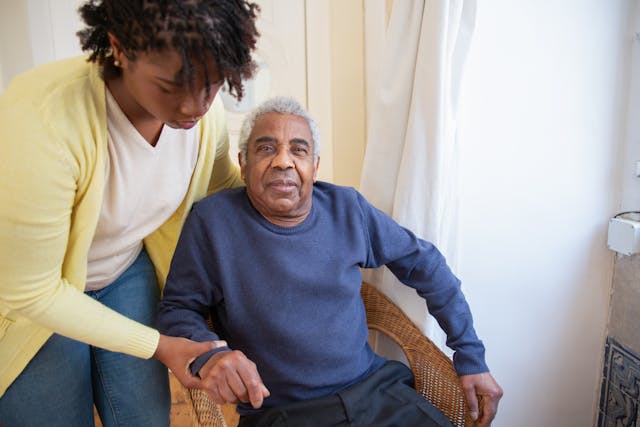Careers, Sponsored Editorial, Your Career
The Role of Nurses in Physical Rehabilitation Programs
Editorial Staff

As populations age and the rates of chronic diseases increase, more individuals are finding themselves in need of comprehensive rehabilitation programs to regain strength, mobility, and independence. Nurses play a pivotal role in these programs, offering essential support that bridges the gap between the patient and the path to recovery. This article looks into the multifaceted contributions of nurses in physical rehabilitation settings and examines how advanced training enhances their capabilities and impact.
The Expanding Role of Nurses in Rehabilitation
Physical rehabilitation services are becoming increasingly crucial as the global population ages. The World Health Organization reports that the proportion of the world’s population over 60 years will nearly double by 2050. This demographic shift, coupled with improved survival rates from severe injuries and chronic conditions like stroke and heart disease, underscores a growing need for skilled rehabilitation services. Nurses are at the forefront of meeting this demand, providing essential care that encompasses more than just basic medical attention; they offer a holistic approach that considers the physical, emotional, and psychological needs of patients.
In rehabilitation settings, nurses undertake a variety of roles ranging from direct patient care to the coordination of therapeutic activities. They are responsible for initial assessments, where they evaluate patients’ functional status and identify rehabilitation goals. Following this, nurses often develop, implement, and monitor individualized care plans that are tailored to each patient’s specific needs, working closely with physical therapists, occupational therapists, and other specialists to deliver comprehensive care.
Advanced Training and Specialization
The complexity of managing rehabilitation programs requires specialized knowledge and skills that go beyond general nursing training. Specialized areas such as neurology, orthopedics, and geriatric care demand an in-depth understanding of patient mobility, pain management, and long-term recovery processes. Here, advanced training becomes crucial. An RN to MSN online program offers a pathway for registered nurses to gain this expertise while continuing to work in the field. These programs focus on enhancing clinical skills and theoretical knowledge, preparing nurses to tackle the unique challenges of rehabilitation with greater competence and confidence.
The flexibility of online programs allows nurses to study without interrupting their careers, integrating new learning directly into their practice. This is particularly beneficial in rehabilitation, where evidence-based approaches and new technologies constantly transform the way care is delivered. By advancing their education, nurses not only improve their own practice but also contribute to the overall effectiveness and efficiency of rehabilitation programs.
Nurse-Led Rehabilitation Techniques
At the heart of nursing in rehabilitation is the implementation of care plans. Nurses play a critical role in this phase, applying their specialized training to help patients regain function and mobility. For instance, they assist in therapeutic exercises, monitor progress, and make necessary adjustments to care plans based on patient response. This hands-on involvement is crucial for ensuring that rehabilitation goals are met.
Moreover, nurses are instrumental in educating patients and families about the rehabilitation process, setting realistic expectations, and providing emotional support. This educational role is vital as it helps patients understand the purpose of their treatments and the importance of active participation in their recovery. Through effective communication, nurses help foster a positive rehabilitation environment where patients feel motivated and supported.
Technology and Innovation in Rehabilitation
In the realm of physical rehabilitation, technology plays a transformative role, and nurses are at the forefront of integrating these innovations into patient care. Advanced technologies such as wearable devices, virtual reality (VR), and tele-rehabilitation platforms are reshaping how rehabilitation services are delivered. Nurses trained in using these technologies can provide more personalized care and real-time monitoring of patients’ progress. For instance, VR can be used to simulate environments and scenarios that help patients regain motor skills and cognitive functions in a controlled setting, while wearable devices can track physiological data and provide insights into a patient’s recovery trajectory.
Moreover, nursing programs often include training in the latest healthcare technologies, preparing nurses to effectively implement these tools in clinical settings. This education ensures that nurses are not only users of technology but also innovators who can assess the suitability of new tools and adapt them to enhance rehabilitation practices.
Interdisciplinary Collaboration
The success of rehabilitation often hinges on the seamless collaboration of multidisciplinary teams. Nurses serve as central figures in this collaborative framework, coordinating care between various specialists such as physicians, physical therapists, occupational therapists, and social workers. Their training in patient assessment and care planning makes them ideal for this role, ensuring that all aspects of a patient’s rehabilitation journey are harmonized and that care goals are met efficiently.
Effective communication is a key aspect of this interdisciplinary approach. Nurses with advanced degrees are particularly well-equipped to lead these teams, as their education includes components of leadership, communication, and team management. Their ability to articulate care plans clearly and concisely, solicit input from colleagues, and integrate diverse perspectives into a cohesive treatment strategy is essential for the holistic rehabilitation of patients.
Challenges in Rehabilitation Nursing
Despite the critical role nurses play in rehabilitation, they face several challenges that can impede the process. One of the primary challenges is patient non-compliance, which can arise from a lack of motivation, pain, or misunderstanding about the recovery process. Additionally, the emotional toll on nurses can be significant, especially when progress is slow or outcomes are not as expected. Managing these challenges requires not only professional skills but also personal resilience.
Strategies to overcome these challenges include continuous professional development and peer support. Engaging in advanced education programs allows nurses to gain deeper insights into patient behavior and advanced strategies for managing complex cases, which can improve patient compliance and outcomes. Furthermore, building strong support networks with peers can provide emotional sustenance and practical advice, helping nurses navigate the stresses of their roles effectively.
Continuing Education and Career Advancement
For nurses, the journey of professional development does not end with initial certification. The field of rehabilitation is dynamic, with continuous advancements in medical research, techniques, and technologies. Ongoing education is crucial for nurses who wish to stay current and provide the best possible care.
Nurses who attain an MSN are often considered for leadership roles within rehabilitation settings, such as program directors or lead coordinators, where they can influence policy and practice at a higher level. These positions allow them to shape the future of rehabilitation services, ensuring that these programs continue to meet the evolving needs of patients and healthcare systems.
Conclusion
Nurses are indispensable to the field of physical rehabilitation. Their extensive training, coupled with their commitment to patient care, makes them pivotal in delivering effective rehabilitation services. By furthering their education, nurses enhance their capabilities, ensuring they are equipped to meet the challenges of modern healthcare delivery. As the demand for rehabilitation services grows, the role of skilled, educated nurses will only become more critical. Embracing continuous education and interdisciplinary collaboration, nurses can lead the charge in advancing rehabilitation practices, ultimately improving outcomes for patients across the globe.















